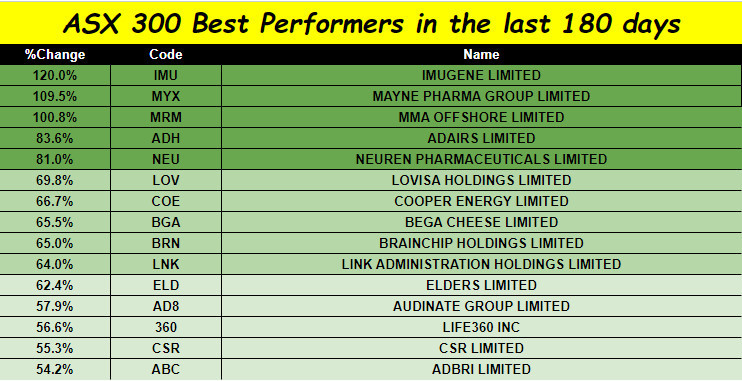Scottish retailers experienced another month of declining sales in August, marking a disappointing summer for the sector. Total sales fell by 0.5% compared to the same period last year, when they had grown 5.6%. This was above the 3-month average decrease of 1.7% and below the 12-month average growth of 1.0%. Adjusted for inflation, the year-on-year decline was 0.2%.
Scottish sales decreased by 0.3% on a like-for-like basis compared with August 2023, when they had increased by 5.2%. This is above the 3-month average decrease of 1.4% and below the 12-month average growth of 0.9%.
Sales Slump Explained
David Lonsdale, Director, Scottish Retail Consortium, attributed the disappointing performance to a combination of factors. “Scottish retailers suffered a hat-trick of falling sales figures during the three months of this summer as August sales dipped below the previous year’s performance. However, the small 0.2 percent real terms fall was an improvement on July giving hope things might pick up as trading moves into the Autumn. Back to school sales were disappointing as consumers looked to save by switching to pre-loved items, an area retailers are increasingly involved in. Food sales were flat, but against very strong figures from last year when inflation was running hot, indicating grocers may have to adapt to more normal conditions.”
Government Policies and Economic Recovery
Mr Lonsdale expressed concern about the impact of government initiatives on the already struggling retail sector. “Unfortunately whilst trading is stagnant new government initiatives remain a concerning growth area. This week’s Programme for Government will be a test to see if Scottish Ministers are paying attention to the travails of the business community, who are already grappling with the implications of the new UK administration’s legislative programme. If there are further significant or unreasonable regulatory burdens announced then industry will question whether the government is truly focused on Scotland’s economic recovery.”
Consumer Sentiment and Spending Habits
Linda Ellett, UK head of consumer, retail and leisure, at KPMG, highlighted the challenges facing retailers due to consumer sentiment and spending patterns. “Despite summer finally making an appearance, and a slight uptick in consumer confidence, shoppers did not catch-up their spending during August, with a slight dip in sales growth reflecting the challenging retail environment that is likely to dominate for the rest of this year. Consumer sentiment is gradually starting to improve, but there still remains some nervousness around potential tax rises and the cost of putting the heating back on when the cooler weather arrives. The fragile nature of consumer confidence means shoppers will continue to be driven by price and value, moving from brand to brand to find the best price benefit and we are likely to see retailers using promotional activity to seek to win at this. Retailers looking to seize on slowly returning consumer confidence will need to demonstrate best value for money, as well as tap in to the “experience” factor as consumers focus their discretionary spend on having fun or experiences over owning more ‘stuff’. Winning retailers will need clear differentiation, targeting specific consumer needs, and executing with consistency and clarity.”
Government Finances and Economic Stability
The Scottish Government is facing significant financial challenges, including weak economic growth and substantial outlays on social security and public sector pay. This has put the devolved government’s £60 billion budget in a bind, leading to decisions to end the peak rail fares discount and curtail winter fuel payments for pensioners, and come on top of increases in taxes earlier this year. It matters profoundly that government finances are put on a sustainable footing as this provides a bedrock of economic stability as well as militating against the need for tax rises which could stymie economic recovery.
The Need for Fiscal Prudence and Policy Reform
The Scottish Retail Consortium has urged the government to focus on spending restraint rather than higher taxes. “We’ve suggested the administration think differently about which services it delivers and how to do so more efficiently. Structural changes to the public sector ought to be implemented too. The Spending Review two years ago identified 129 public bodies under the Scottish Government’s purview. Indeed, it’s said there are now more public bodies than there are MSPs. So the number of public bodies could be rationalised and government premises surplus to requirements disposed of. The number of civil servants has almost doubled since devolution. Headcount could be reduced, recruitment for non-critical posts paused, and the policy of no compulsory redundancies rescinded. Government focusing on doing fewer things won’t cause too much distress for a business community already drowning in new regulations.”
New Regulations and The Burden on Businesses
The Scottish Retail Consortium is advocating for a holistic approach towards new regulations affecting business, one that takes into account the current tricky trading conditions for retail and the extensive regulatory agenda already in train. Scotland’s retailers have got a vast number of devolved initiatives on their plate. This includes: this month’s increase in alcohol minimum unit pricing; in-store restrictions on selling foodstuffs high in salt and sugar; in-store restrictions on promoting alcoholic beverages; a ban on selling disposable vapes; and the proposed levy on disposable cups. On top of this are UK wide interventions including next year’s expensive new extended producer responsibility rules on packaging, as well as the deposit return scheme for drinks containers. Hopefully, the First Minister will blunt or end altogether some of these initiatives. This would allow retailers to better focus on their customers and becoming more productive. It would be good for shoppers too as extra statutory costs that retailers encounter are often passed on to consumers.
A Call for Responsible Governance and Economic Growth
The Scottish Retail Consortium is calling for a responsible approach to government spending, policy reform and regulation. “The one certainty is there will be a Budget Bill. The last Budget was significantly flawed, including a misbegotten mooted business rate surtax on grocery stores and eye-watering business rate hikes. The new Budget Bill should knock the surtax on the head and include a timetabled plan for lowering the business rate which is already at a 25 year high. An ambitious Bill would speed up restoring the level playing field with England on the higher property rate. This agenda could make Scotland’s economy more buoyant, lift living standards, and generate the tax revenues to support public services and alleviate poverty. It would help deliver our shared ambition with Mr Swinney for a more dynamic economy.”
The Road Ahead for Scottish Retail
The retail sector in Scotland faces a challenging environment, with declining sales, government policies and consumer confidence playing a crucial role. The Scottish Retail Consortium and other stakeholders are calling for a comprehensive approach to address these challenges, including responsible government spending, policy reform and a focus on supporting the business community. The future of the retail sector in Scotland depends on a collaborative effort to create a more buoyant and dynamic economy.


















